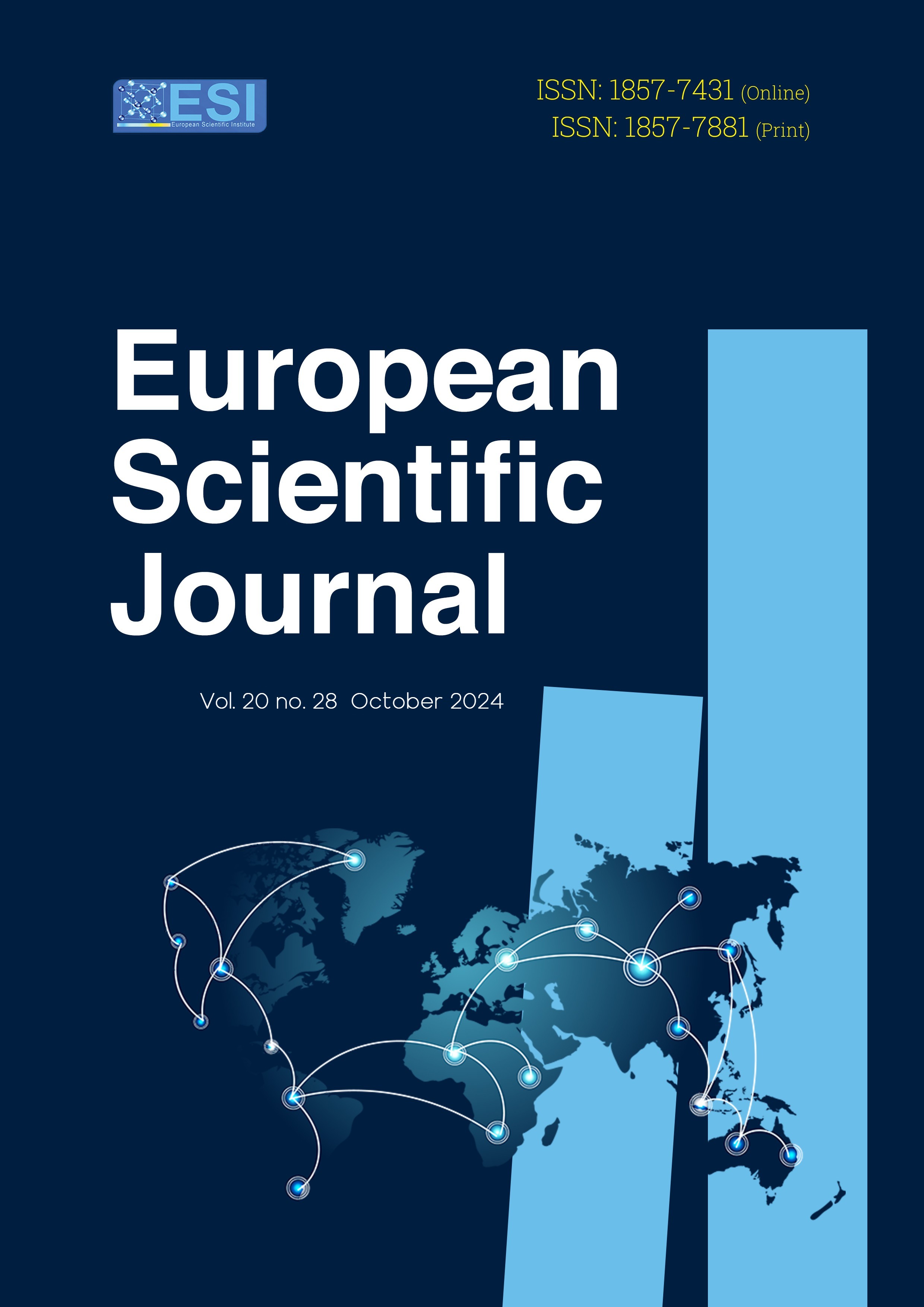The Impact of Aligning Kolb’s Experiential Learning Theory with a Comprehensive Teacher Education Model on Preservice Teachers’ Attitudes and Teaching Practice
Abstract
Since its inception, experiential learning has been a foundational tenant of teacher education. However, it is questionable to what extent authentic experiential learning practices are actually taking place. Based on Kolb’s Experiential Learning Theory Model, this paper presents an approach to addressing this issue. This exploratory manuscript further examines Kolb’s Experiential Learning Cycle (ELC) and considers its implications for Experiential Learning Theory (ELT) in teacher education. A description of the teacher education program in the CRMEF (Centre Régional des Métiers de l’Education et de la Formation) is provided, followed by results from a quantitative and qualitative survey triangulated with teacher trainees’ reflection journals to evaluate the training program in terms of the teacher trainees’ developing confidence and competence in teaching. This paper focuses on exploring the implementation of this approach for teacher education in the CRMEF. Results indicate that a large majority of the participants developed confidence in teaching through this approach, subsequently changing their perceptions and attitudes toward teaching English. Specific learning experiences that contributed to their confidence and competence include in-person, experiential, and hands-on approaches to learning relevant skills and knowledge, confirming the importance of using Kolb’s ELC as the foundation for teacher education programs. The study recommends that teacher educators should enhance their programs by providing pre-service teachers with instruction in authentic experiential learning pedagogy. Therefore, a comprehensive model for teacher education is proposed to demonstrate the role of experiential learning.
Downloads
PlumX Statistics
References
2. Bondy, E., Schmitz, S., & Jhonson, M. (1993). The Impact of coursework and fieldwork on student teachers’ reported beliefs about teaching poor and minority students. Action in Teacher Education, 15(2), 55-62.
3. Conrad, D., & Hedin, D. (1990). Learning from service. In J.C. Kendall and associates (Eds.), Combining service and learning: A Resource book for community and public service. Vol1. Raleigh, N.C: National Society for internships and experimental education.
4. Conway, C. (2002). Perceptions of beginning teachers, their mentors and administrators regarding pre-service music teacher preparation. Journal of research in music education, 50(1), 20-36.
5. Deering, T. E. & Stanutz, A. (1995). Preservice field experience as a multicultural component of a teacher education program, Journal of Teacher Education, 46 (5), 390-394.
6. Dewey, J. (1938). Experience and education. New York, NY: Kappa Delta Pi. ISBN 978-0-684-83828-1
7. Freire, P. (September 2000). Pedagogy of the oppressed (30th anniversary ed.). New York: Bloomsbury. p. 16. ISBN 9780826412768. OCLC 43929806.
8. Groulx, J.G. (2001). Changing preservice teacher perceptions of minority schools. Urban Education, 36(1), 60-92. Kolb, A., & Kolb, D. A. (2005a). Experiential learning Theory Bibliography. Experience Based Learning Systems, Inc. Cleveland, OH. Retrieved from www.learningfromexperience.com.
9. Hatcher, J. A., & Bringle, R.G. (1997). Reflection: Bridging the gap between service and learning. College Teaching, 45(4), 153-158.
10. ITQANE Project (2009-2012). Improving training for quality advancement in national education. Retrieved from http://www.projetitqane.ma/E-learning platformhttp://itqane.aui.ma/
11. Kolb, A. & Kolb, D. A. (2005a). Experiential Learning Theory bibliography. Experience Based Learning Systems, Inc. Cleveland, OH. Retrieved from www.learningfromexperience.com
12. Kolb, D.A. (1984). Experiential learning: Experience as the source of learning and development. Upper Saddle River, NJ: Prentice Hall
13. Lahchimi, M. (2015). La reforme de la formation des enseignants au Maroc. Revue internationale d’éducation de Sèvres. Retrieved from: https://doi.org/10.4000/ries.4402
14. Lazer, A.M. (2007). It’s not just about teaching kids to read: Helping preservice teachers acquire a mindset for teaching children in urban communities. Journal of Literacy Research, 39(4), 411-443.
15. Le Chef du gouvernement, la Loi-Cadre N°51.17 relative au système d’éducation, de formation et de recherche scientifique, Journal officiel, n° 6944, 17 décembre 2020.
16. Liddell, D. L., Hubbard, S., & Werner, R. (2000). Developing institutions that focus on learning. In D. Liddell & J. Lund (Eds.), New directions for student services. Powerful programming for student learning: Approaches that make a difference. No. 90, p. 21-33. San Francisco: Jossey-Bass.
17. Meiners, J., Schiller, W., & Orchard, J. (2004). Children and the arts: Developing educational partnerships between preschool, school and tertiary sectors. Journal of In-service Education (30), 3, 463-476.
18. Mezirow, J. (September 01, 1981). A Critical theory of adult learning and education. Adult education quarterly. 32 (1): 3–24. doi:10.1177/074171368103200101. ISSN 0741-7136. S2CID 145279628.
19. Mezirow, J. (1991). Transformative dimensions of adult learning. San Francisco, CA: Jossey-Bass.
20. Mezirow, J. (2000). Learning as transformation: Critical perspectives on a theory in progress. San Francisco: Jossey Bass.
21. Ministère de l’Education Nationale (1991). « Charte Nationale de l’Education et de la formation. Espace IV : Ressources humaines », Mesure 136, pp. 55-56.
22. Ministère de l’Éducation Nationale, de l’Enseignement Supérieur et de la Recherche Scientifique (2009). Plan d’urgence de la réforme du système éducatif marocain. Rabat, MA: MENESRS.
23. Ministère de L’éducation Nationale (2011). Document cadre du nouveau dispositif de formation aux CRMEF. Rabat, MA: MEN.
24. Ouasri, A. (2019). La Formation des enseignants des sciences au Maroc : Historique, état des lieux et perspectives. Educational Journal of the University of Patras UNESCO Chair. Retrieved from: https://doi.org/10.26220/une.2947
25. Schön, D.A. (1995). Knowing-in-action: The New scholarship requires a new epistemology. change, 27(6), 27-34. Retrieved from: https://doi.org/10.1080/00091383.1995.10544673
26. Tardif, M., & Borges, C. (2009). L’internalisation de la professionalisation de la formation a l’enseignement secondaire et ses retraductions dans des formes sociales nationales. In R. Hofstetter B. Schneuwly (Dirs.), Savoirs en (trasns)formation. Au cœur des professions de l’enseignement et de la formation (p. 109-136). Bruxelles, BE : De Boeck.
27. Tardif, M., Lessard, C., & Gauthier, C., (1998). Introduction. In M. Tardif, C. Lessard & C. Gauthier (Dirs.), Formation des maîtres et contextes sociaux (p. 7-70). Paris, FR : Les Presses Universitaires de France.
28. Welch, W. (1995). The Efficacy of primary teachers in art education. Issues in Educational Research, 5(1), 71-84.
Copyright (c) 2024 Karima Mechouat

This work is licensed under a Creative Commons Attribution 4.0 International License.








